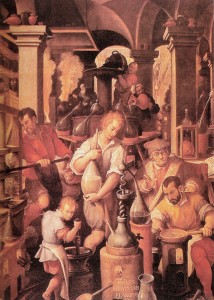
The neologism “Healthcare Narrative” allows us to rethink narrative as tool useful not only for the doctor-patient encounter, comprehending all the different roles working in healthcare: physicians, nurses, therapists, educators, pharmacists, psychologists, social workers, and the many other healthcare professions. Narrative Medicine grows, showing how its theoretical and practical tools could investigate and improve quality of care all-around: the relationship with patient and between professionals in the working team, the organization, the well-being of patients, caregivers, and all professionals.
For this reason, we present “Narrative Pharmacy. Future and present hospital pharmacists confront each other to rediscover their profession through narrative”, project work developed by Daniela Scala and Maria Titti Faggiano during the third edition of Master in Applied Narrative Medicine: this is another example of the concreteness of this training path, which intends to give Narrative Medicine tools in order to effectively act in healthcare contexts, to improve work climate, relationships in care teams, and doctor-patient relationships.
The project work aimed to analyze the identity and the professional life of hospital pharmacists, identifying perceived strong and/or weak points, in order to increase the appreciation of their role.
To compare this two generations of present and future hospital pharmacists, fifteen hospital pharmacists and fifteen graduate students, both recruited in two hospitals, were involved.
Professionals were invited to narrate their professional life through a track, starting from their motivations and their first field experiences, describing everyday relationships with patients and colleagues, expressing doubts, difficulties, reflections, but also satisfaction and gratification elements, until the vision of their future.
Among main results, the theme of the expectation of the professional recognition in healthcare settings is strong in both groups; in fact, expressions such as “drugs dispenser”, “retailer” often let understand an underestimating perception of this professional category. Younger pharmacists describe future with enthusiasm: there is the willingness to do the best in this pathway started, to grow humanly and professionally. For them it is very important to have reference figures, as well as team working. Structured pharmacists evidence effort and disenchant, due to unsatisfying work rhythms and to a close, problematic and not collaborative work climate.
This work represents an innovative and precious first listening experience of professionals in Hospital Pharmacy. We hope that other initiatives will follow in order to involve hospital pharmacists in more and more interdisciplinary team in our hospitals.
